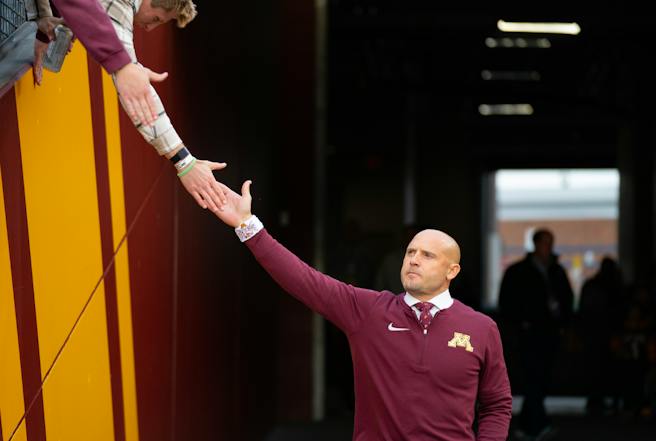Coach of the Gophers P.J. Fleck mentions seven-figure salaries for elite players
Teams can shop for transfers to meet their demands during the first window of the transfer site.
However, the Gophers are unable to afford the same merchandise as football’s top teams.

A decent quarterback in the transfer portal now days goes for $1 million to $2 million, according to Nebraska coach Matt Rhule’s comments last week. P.J. Fleck, the coach of the Gophers, concurred on Thursday, saying, “That’s almost any position.”
During a video news conference announcing the Quick Lane Bowl on December 26, Fleck spoke candidly about the disruptive forces of name, image, and likeness (NIL) deals and the transfer portal. These developments have drastically altered the landscape of college football.
“I’ve heard numbers this week, whether real or not, that just make your jaw drop, that are pretty much most of our entire NIL [total],” added Fleck.
Teams were able to legally begin searching for undergraduate transfers to cover gaps within the first 30-day window of the transfer portal, which launched on Monday. The possibilities are endless for college football powerhouses with NIL collectives that are affluent.
For instance, like last year’s winner, USC’s Caleb Williams, three of this year’s Heisman Trophy finalists—quarterbacks Bo Nix of Oregon, Michael Penix Jr. of Washington, and Jayden Daniels of LSU—are transfers.
Dinkytown Athletes, Minnesota’s official NIL collective, was established in September 2022 and has proven to be crucial in helping the Gophers hang onto players like cornerback Justin Walley, wide receiver Daniel Jackson, and running back Darius Taylor during the previous week.
“Dinkytown Athletes has done a really good job of providing our student athletes with a lot of support. … I love where we’re at,” Fleck stated. “We’re not done yet, but we’ve come a long way since last year. We’re coming a long way in that regard.”
The coach is also aware that the Gophers shop at Target while the elite players in the sport visit Louis Vuitton to get transfer talent.
When Rhule mentioned $2 million quarterbacks, Fleck responded, “To put it that way, he’s not talking about us.”
Rather, Fleck and his staff are searching for players that would fit into their culture and could be available for a low cost. Max Brosmer, a transfer quarterback from New Hampshire who verbally committed to the Gophers on Sunday night, is the quarterback they think they have found.




